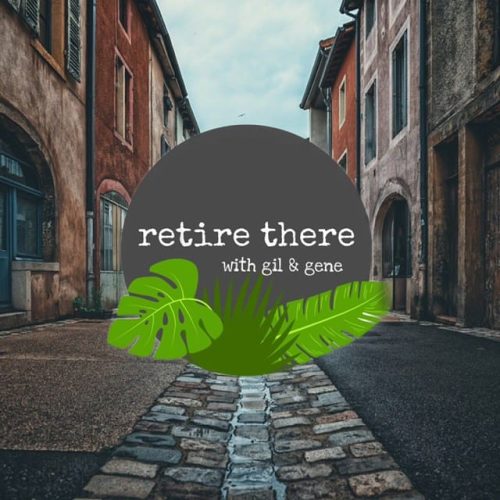How to Protect Seniors from Scams
GUEST WRITER
Too good to be true.
We have all heard this old phrase.
Sadly, we don’t always heed its warning.
The world has become super competitive and very connected. Many people have also become very greedy, and an ‘honest day’s work’ does not seem to be a valued principle any longer.
The get-rich schemes have taken over our society, be they Ponzi schemes, Real Estate scams or love rats. Additionally, many scammers aren’t strangers but our dear friends and loved ones.
Senior citizens are unfortunately an easy target with studies showing that the older you are, the more vulnerable to scams you are.
While it’s hard to prevent fraud, especially against the elderly, you as seniors can limit your exposure. However, before we give you tips to protect yourself from scams, let us further explore and understand scams.
Understanding scams
A ‘scam’ is slang for swindling or defrauding and is often used when describing fraudulent schemes. They are deceptive tricks or malicious plots used on unsuspecting victims to cheat them out of something of value like Money, heirlooms, property and identity.
While scams can happen to anyone, many scammers target senior citizens due to their vulnerability and isolation. According to research by Consumer Affairs, over 3.5 million senior citizens are victims of financial fraud every year.
Scamming is illegal and punishable under financial criminal laws. Not that this fact will always bring you sufficient justice if you have been a victim.
Types of scams
Romance scams
Not about seniors? Think again. Romance scams have surged, mostly due to the pandemic and the growing popularity of global online dating apps. Dating apps expose genuine love seekers to scammers.
In 2021 alone, over $547M was lost to love scams, making romance scams the leading cause of fraudulent financial loss across every age group.
Online shopping scams
Although many shoppers have embraced online shopping, it has loopholes that lead to fraudulent activities, especially among older Americans.
Scammers open websites that appear legitimate. However, their domain names have slight modifications similar to a famous brand. As such, they lure consumers with lower prices. If the buyer receives anything, it’s quite different from the brand they know.
Computer tech-support scammers
Tech support scammers trick their victims by creating computer viruses and problems that only they can resolve. In return, they make money by charging their victims to remove the virus or for services they don’t perform or never needed to perform.
Sometimes, these scammers may call their victims directly and warn about their computers’ viruses, but they mostly connect with targets online.
This may happen on your own website or frequently visited websites. The virus generates pop-up warnings, and the message includes cautionary notices alerting you of Security issues or viruses on your computer.
Imposter scams
Imposter scams come in various forms – fraudsters posing as banks, government officials, family members or friends. Imposters mostly trick their victims into giving out their personal information. It can be less obvious sensitive information, but often includes vital data such as passport and driving license details, birthdate, Social Security number, passwords and bank account numbers.
For family imposters, the scammer poses as your family member by hacking their social media account or emails. They will then claim an emergency and start asking for money. There have even been cases of impersonating ‘grandchildren’ calling the grandparents on a garbled phone line begging for help.
Other types of financial scams
- Resale scams
- Investment scams
- Health insurance scams
- Timeshare sale scams
- Sweepstakes scams
- Doorstep scams
- Cold calls and phone scams
- Pension scams
- Postal scams
Tips for protecting yourself from scammers
Create stronger password protection
Many service providers, financial companies and online retailers have embraced dual-factor authentication. Dual-factor authentications include a unique code given via email or text that allows you to get access to your account after you have successfully entered your login information.
Please turn it on when opening an account. It’s an extra step; however, it provides extra security.
Further, always include capital and lower-case letters, numbers and symbols if creating a password for yourself.
Protect your mail
The USPS informed delivery is a service that sends images of your expected mail via email. This allows you to monitor your letters and also plan for any expected bills, checks, and other important communication.
Keep a tab on your credit report
TransUnion, Experian, and Equifax, the top major credit reporting agencies, offer weekly online reports. Take up the offer and monitor your credit history. This enables you to quickly discover when your account and credit have been tampered with and take appropriate action. Unfortunately, the companies don’t always share the corrections, so contact each separately when hoping to clear up an issue.
Monitor your bank accounts regularly
It is advisable to log in at least weekly to your accounts through mobile banking apps or online banking and keep tab of your balances.
Additionally, monitor your account activity. This ensures you quickly catch any unauthorized transactions.
In case your bank has online alerts, set them up and let the bank notify you of any changes or transactions happening in your account.
Filter phone calls
We all get a flood of spam calls. To curtail them, enter your trusted contacts in your phone contacts to easily identify the person calling.
Don’t answer unknown callers; you might be giving scammers a chance to do their dirty work. If they need to contact you, let them leave a message first.
Additionally, install call-blocking and identifying apps such as Trucaller.
Never use the word ‘yes’ when answering unknown calls; it can be captured, recorded and used for authentication for things like purchases.
Shred sensitive documents
Embrace the habit of monthly reconciliation of your accounts and shredding records like checks, deposit and ATM slips.
Reconciling your accounts allows you to notice any abnormalities. Shredding sensitive documents prevents personal identity theft.
For your monthly saving and checking statements, securely store them until you file your taxes. Later, shred them, unless you need them to prove wanted tax deductions.
Opt for eStatements, where you can access statements anywhere and anytime.
Avoid sharing your information

Avoid sharing your sensitive information with your child, grandchild or another relative. Remember, many elders fall victim to scams, especially financial ones, from their next of kin. Sad, but true.
Be cautious of emails and calls requesting sensitive and personal information; unless it’s a verified and trusted source. Some scammers may use phishing methods to obtain your personal information by using fraudulent messages from websites that may appear all-too real.
Guard all your online information
Ensure your computer has powerful security software that prevents hackers from accessing your data.
Avoid entering your personal information from public computers and networks, like login credentials and financial information. Public computers may have hidden passwords that can capture the information you enter.
When logging into service providers, online shops, or banking sites, use the website URL that starts with HTTPS. Never purchase from a site’s page that does not have the ‘s’ behind https – meaning never on a page listed as “http:’’
Vet unfamiliar e-retailers
Cheap is expensive. Before purchasing from new e-retailers, do web research and read other users’ reviews. Check out the company name followed by “complaints,” “fraud,” and “scam” to know its veracity quickly.
Copy your wallet contents
Having photocopies of your credit cards, ID, and driving license is a simple way of protecting yourself from credit card fraud and identity theft, should you lose your wallet.
Avoid sending nudes
Yes, even seniors can fall for this scam.
When love strikes, it can make even the sanest person crazy.
On various dating apps, romance/extortion scammers have increased. After a few conversations and when your defense is down, and love is hot, they may ask for nude pictures.
After some time, the scammers will start using the nude photos to extort money. In case you hesitate, they threaten to post them on social media or send them to your family, friends and colleagues.
Many victims pay, but the extortion never stops.
Stop, breathe, think, and ask questions
Most scammers often target their victims with lots of emotional hot buttons. Therefore, you get confused and may act out irrationally without thinking.
Never allow strangers or family members to force you to make fast decisions. Relax, pause, calm yourself down and think critically and clearly before making any decision.
Report suspicious activities
If you fall victim to any of the above scams, immediately report it to the police and relevant authorities. However, when dealing with identity theft scams, going a step further and involving lawyers from a reputable law firm is vital to safeguarding your interest and protecting yourself.
Note from drb: the authors of this post represent such a law firm. The post is not an endorsement but allows you to contact them or review their website to help you evaluate such services.
Final thoughts on protecting seniors from scams
Scamming has become commonplace, and it affects everyone regardless of their age. However, seniors are particularly vulnerable.
The responsibility of safeguarding your identity, property and life from scammers starts with you. Keep a tab on everything that concerns your life. Don’t agree to enrich others with your sweat. Follow the above tips and keep villainous scammers away from your life.
—
The Authors Bio
Purity Rita is a freelance writer, an all-rounded Finance girl and a lifelong addict of sweet things. She works closely with New Jersey Lawyers, Aiello Harris helping them to create valuable content and build a commanding online presence. When not clicking away on her laptop, she loves baking, eating whatever she has baked, traveling and reading good fiction.
Note from drb: this article is with thanks to the author, as well as submitter Eric Tres, who along with Purity Rita, works with Christopher G. Aiello (below)
Christopher G. Aiello has been practicing law for over 35 years and is the managing partner of Aiello Harris, Marth, Tunnero & Schiffman, P.C. Mr. Aiello has represented large corporations such as Fiat Chrysler Automobiles, Mitsubishi Motors Corporation, and The Hertz Corporation. He has given opinions and advice in The Philadelphia Inquirer, the New York Daily News and the New York Post. For his adherence to legal ethics and superior skills, Mr. Aiello has earned the highest rating possible of AV Preeminent* from Martindale-Hubbel as well as being selected to Top 100 Trial Lawyers List, Super Lawyers® 2016-2021 and is top rated on Avvo.
—
Picture credits:
Title SCAM photo: https://bit.ly/3RoM93O
Scam alert graphic composite: https://bit.ly/3rfpBbg
The post How to Protect Seniors from Scams appeared first on Aging with Pizzazz.
























